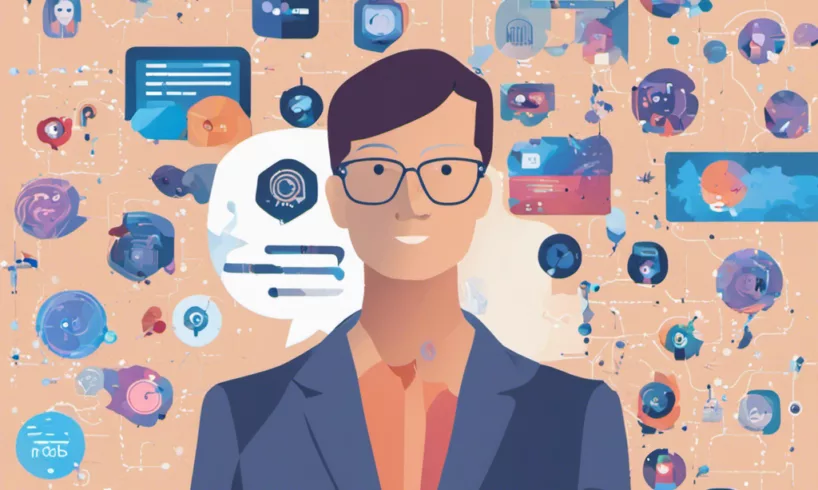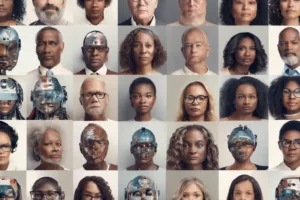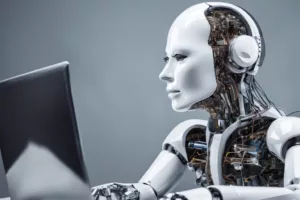
OpenAI's new marketplace offers users access to personalized AI apps, signaling the company's ambition to expand its consumer business.
OpenAI, the leading artificial intelligence research lab, has launched a marketplace that allows users to access personalized AI “apps” for various tasks. The marketplace, unveiled at OpenAI's first developer conference, aims to capitalize on the success of ChatGPT, the company's popular AI language model. With over 100 million weekly active users, ChatGPT has become a household name in the AI community. OpenAI's marketplace, the GPT Store, will enable developers to share their AI apps, known as GPTs, and earn money based on user engagement. This move signifies OpenAI's determination to expand its consumer business and create a thriving ecosystem of AI applications.
OpenAI's GPTs: AI Assistants for Real-World Tasks
OpenAI's GPTs, short for “Generative Pre-trained Transformers,” are early versions of AI assistants designed to perform real-world tasks on behalf of users. These tasks could range from teaching math to designing stickers or booking flights. The GPT Store, set to launch later this month, will serve as a platform for developers to share their GPTs and monetize their creations. OpenAI's CEO, Sam Altman, envisions a future where users can simply ask their computers for assistance, and the AI will seamlessly perform the requested tasks. This marketplace aims to facilitate the gradual deployment of AI while addressing safety challenges and ensuring a cautious approach.
OpenAI's Developer-Focused Updates and Cost Slashing
OpenAI also announced several updates at the developer conference aimed at enhancing the developer experience. One of the highlights was the GPT-4 Turbo model, which offers significant cost reductions compared to its predecessor, GPT-4. The GPT-4 Turbo model processes a vast amount of data and is several orders of magnitude cheaper, making it an attractive option for developers. OpenAI also unveiled assistant application programming interfaces (APIs) with vision and image modalities, expanding the possibilities for developers to create innovative AI applications. Additionally, OpenAI launched a beta program for developers to fine-tune GPT-4 models, further empowering them to customize and optimize their AI creations.
Excitement and Support from the Developer Community
The developer conference drew immense interest, with over 900 developers attending worldwide. Attendees eagerly awaited updates from OpenAI, and the YouTube livestream of Altman's keynote speech garnered over 40,000 viewers. The announcement of cost reductions and new APIs was met with enthusiastic applause from the audience. Developers expressed their excitement about the potential of these updates, as they significantly reduce costs and open up new possibilities for AI startups. One attendee, Flo Crivello, the founder of AI assistant startup Lindy, praised the cost reductions, citing a threefold decrease in expenses. However, some developers acknowledged the potential competition with OpenAI's GPT bots, recognizing the complex dynamics between startups and the AI giant.
OpenAI's Vision for Collaboration and Competition
Altman emphasized the importance of building deeper integrations on top of OpenAI's technology, urging developers to go beyond simple applications. He envisions a future where individuals have multiple GPTs working together to accomplish tasks on their behalf. OpenAI encourages more enterprises and developers to build models that rival those developed by other industry players, such as Alphabet's Google and Meta Platforms' Llama. OpenAI also competes with Microsoft for enterprise customers, and Satya Nadella, Microsoft's CEO, made a surprise appearance at the conference, reaffirming Microsoft's support for OpenAI's endeavors. Microsoft has invested over $10 billion in OpenAI and is committed to providing the necessary resources for builders of foundation models.
Addressing Concerns and Legal Support for Enterprise Users
To address the concerns of big enterprises, OpenAI launched its Custom Models program, offering the creation of custom GPT-4 models at a “high” price. This program aims to cater to the specific needs of enterprise users and provide tailored solutions. OpenAI also matched offers from Google and Microsoft to cover any legal costs related to copyright infringement claims for enterprise users. By offering legal support and customized models, OpenAI aims to attract more enterprise customers and solidify its position in the market.
OpenAI's marketplace for personalized AI apps marks a significant step in the company's expansion into the consumer business. With the success of ChatGPT and the GPT Store, OpenAI aims to create a thriving ecosystem of AI applications. The developer-focused updates, including cost reductions and new APIs, have generated excitement among developers, who see the potential for innovation and cost savings. OpenAI's vision for collaboration and competition in the AI space, along with the support from Microsoft and other industry players, positions the company as a leader in the field. As OpenAI continues to push the boundaries of AI technology, the possibilities for personalized AI assistants and their impact on various industries are boundless.

Alejandro Rodriguez, a tech writer with a computer science background, excels in making complex tech topics accessible. His articles, focusing on consumer electronics and software, blend technical expertise with relatable storytelling. Known for insightful reviews and commentaries, Alejandro's work appears in various tech publications, engaging both enthusiasts and novices.
Follow us on Facebook







